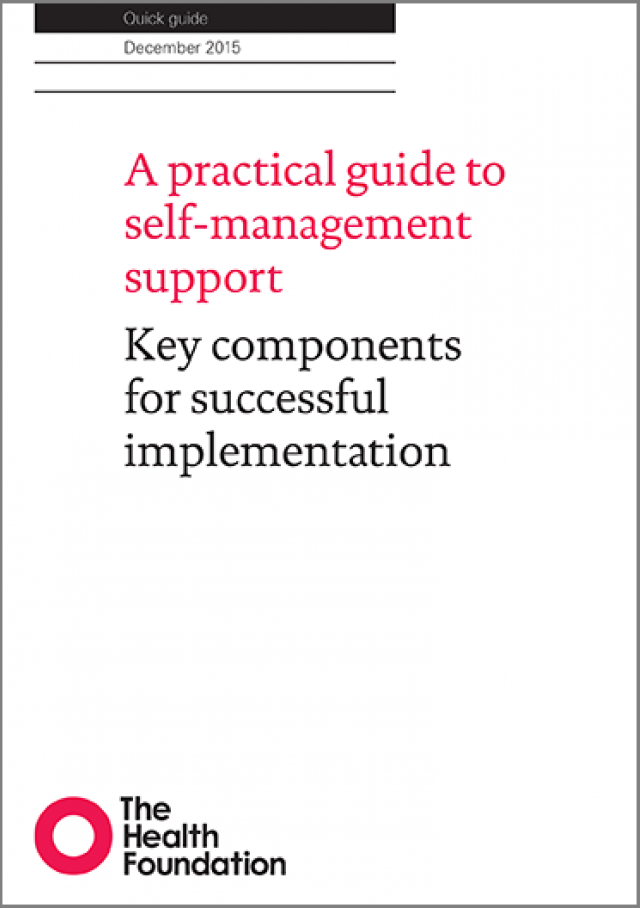A practical guide to self-management support Key components for successful implementation
December 2015

Key points
- This guide provides an overview of self-management support and the key components for effective implementation.
- It explains what self-management support is and why it is important, then looks at various aspects of putting it into practice, including planning and commissioning, building knowledge, skills and confidence, and measurement and evaluation.
- It also contains suggestions for further reading and case studies of self-management support in practice.
Self-management support is when health professionals, teams and services (both within and beyond the NHS) work in ways that ensure that people with long-term conditions have the knowledge, skills, confidence and support they need to manage their condition(s) effectively in the context of their everyday life.
A system of effective self-management support requires changes at every level from how and what services are commissioned, to how health professionals and people with long-term conditions work together in a consultation, to how people are supported in between appointments.
This guide will be useful both for those starting their self-management support journey and those building on and improving the support that they already provide.
Cite this publication
Further reading
Work with us
We look for talented and passionate individuals as everyone at the Health Foundation has an important role to play.
View current vacanciesThe Q community
Q is an initiative connecting people with improvement expertise across the UK.
Find out more


